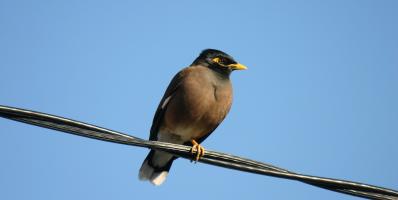Evol_Race
An evolutionary arms race: unravelling rapid evolution in a biological invasions context
Research in evolutionary ecology has witnessed a recent paradigm shift: the Anthropocene has shown us that evolution is not a gradual, slow process, as Darwin had hypothesized. Instead, human-induced rapid environmental changes have helped researchers understand that evolution can in fact happen rapidly, in contemporary times.
The overarching goal of this proposal is to conclusively examine the ecological and evolutionary consequences of island tameness (the adaptive loss of effective anti-predatory behaviors on island populations) in a context of rapid environmental change. More specifically, we aim to investigate if rapid phenotypic shifts (in behavior and morphology) of a native prey correspond to rapid evolution to adapt to a new predator. Then, we will test the hypothesis that these novel predators may in turn experience rapid evolutionary change (or, alternatively, phenotypic shifts driven by plasticity) as a consequence of the rapid changes in their most important prey.
To do this, we will take advantage of a unique natural experiment on the island of Ibiza. We will carefully investigate predator-driven behavioral evolution by natural selection in endemic lizards in the context of a recent, rapidly spreading predatory snake invasion. We have already identified a series of replicated sites where snakes are coexisting with native lizards and others where these new predators are not present.
Preliminary results suggest these lizards may have experienced a rapid shift in both their morphology and their behavior. We will compare the phenotypes and genomes of lizards in these two different predation regimes by using high-resolution morphological profiling and innovative behavioral assays to examine risk-taking behavior.
Then, we will combine these with cutting-edge genomic tools, novel molecular techniques and a recently refined theoretical framework on the ecological relevance and evolutionary potential of inter-individual variation in behavior. This will allow characterizing potential phenotypic shifts of native lizards in response to the novel predator (OBJ 1), on the populations of rapidly spreading invasive snakes (OBJ 2) as well as identifying the genetic basis of such differences (OBJ 3).
Objectives
In this project, we aim at obtaining an integrative perspective of the consequences of predator invasion, from the genetic modifications to the ecosystem level alterations caused by these invasions. The arrival of the snakes could entail modifications in the way these keystone wall lizards interact with their (e.g. by consuming different prey). This is particularly important given that Ibiza wall lizards are not only key arthropod mesopredators but they also disperse and pollinate native plants. Therefore, changes in their foraging niches could entail the deterioration of ecosystem functioning.
Overall, our integrative approach will effectively advance the state-of-the-art of adaptive diversification theory by incorporating the role of behavior in the first stages of evolutionary adaptation to new selective pressures. This is a question of major relevance in the current context of human-induced rapid environmental change and will have particular impact to unravel the resilience of delicate Mediterranean ecosystems to global change.
Project CNS2023-145335 funded by MICIU/AEI/10.13039/501100011033/ and by the European Union NextGenerationEU/PRTR.













